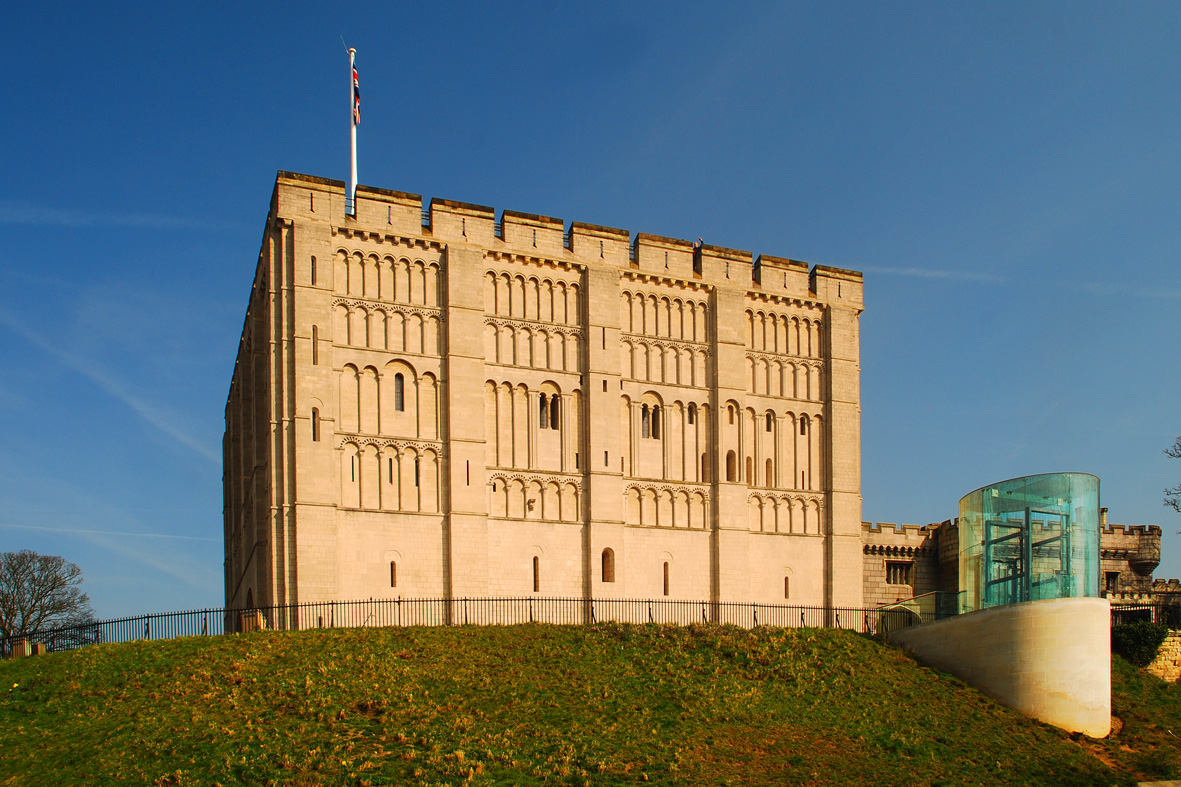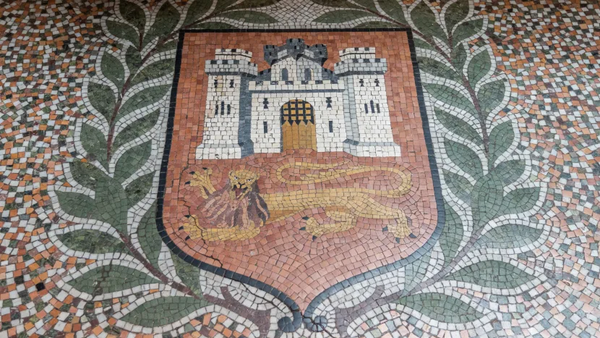Mosaic news from around the world is always exciting and inspirational for those of us who love it. This month, the latest discovery comes from Norfolk County in England. Although this area bordering the North Sea is rich with Roman history and archeological finds, this piece is more recent.
Here’s an introduction to a beautiful restoration of an actual castle mosaic, as well as a bit of history about the area, and some other significant pieces of mosaic art. Get ready for some new travel and decorating ideas!
A Surprise in the Palace

The Norwich Castle was completed in 1121, and – rather uniquely – was always intended to function as a royal residence. This stately structure was meant to house and impress its Norman Kings and their guests. Built of French Caen limestone, it was lavishly appointed. The stone keep is the 5th largest in England.
In the 13th century, the castle lost its importance as a stronghold and it was used as the County Gaol and center of operations for Norfolk. The sturdy structure remained in use as a prison for 600 years! At that time, the building was purchased by the city of Norwich and they were opened as the Castle Museum in 1894. It’s been wonderfully preserved.

Recent renovations uncovered a gem from the time of that transition. While undergoing a massive £13.5m Royal Palace Reborn update, crew members brought a marble floor mosaic to life again. Conservation was foremost on their minds – when plans were made to replace the flooring in its original location, this piece of art was restored and prepared for relocation.

Depicting the iconic Keep, this Victorian treasure will feature prominently in the new Reception Area at the museum. Once installed, the mosaic will show off its glow-up to new generations of Museum visitors.

Although the original mosaic artist isn’t known, the piece is a version of the Norwich City coat of arms. A rampant lion and additional laurel leaves frame the large design.
Get the look:

Another Mosaic Art Destination

If you’re planning on visiting the museum, keep in mind that the Norfolk area is a delight for art and history lovers! The Romans occupied the region for centuries. The mostly rural population lived in scattered homesteads, villages or more affluent Roman villas. If you’re guessing that “villas” mean “amazing mosaic art”, you’re correct.

Leicester has outstanding examples of Roman mosaic art, with some deemed “The largest and finest-quality mosaics found in more than 150 years” by experts The rooms in excavated houses contain mosaics with elaborate patterns and designs, as well as spectacular colors.
One famous floor is the Blackfriars Pavement, which was originally part of a bathhouse. View it today at the Jewry Wall Museum, along with a wealth of other mosaic discoveries.

Get the look:

Another vividly-hued piece is this 2nd Century peacock, also from the Museum. This regal bird was a popular motif, as it was the symbol for both the goddess Juno and the empress Faustina, who died in 141 AD. The original location was the center panel of the Peacock Mosaic Pavement on St. Nicholas Street. Imagine walking on this mosaic floor when it was new!

Get the look:

You’ll also find incredibly complex geometric designs in Leicester excavations, which are carried out by the University of Leicester Archaeological Services. This intricate braided knot border is a fine example of the amount of preservation seen in these ancient mosaic art designs.

Get the look:

Enjoying centuries of mosaic art near the British seaside seems like a great vacation to us! Know of any other mosaic-rich destinations? Let us know in the comments!

